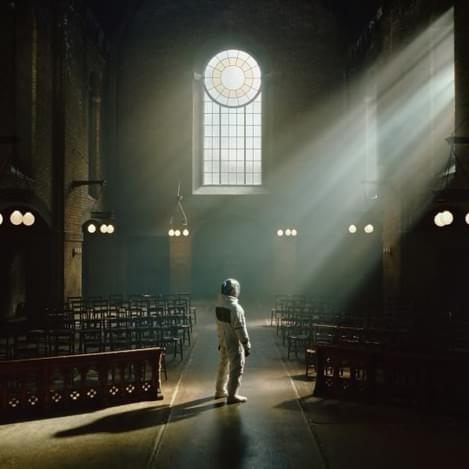For album nine Architects make an uncompromising move filled with exploration
"For Those That Wish To Exist"

“This album was me looking at our inability to change to a way of life that would sustain the human race and save the planet,” explains drummer and songwriter Dan Searle. It’s a record which doesn’t simply ask people to stop pointing fingers but demands that they look themselves in the eye and examine their own behaviour.
"Do You Dream of Armageddon" opens the record with dramatic, building instrumentals befitting a film soundtrack – but instead of setting up the image of a fictional dystopia, it emphasises the dystopian nature of our current reality. Sam Carter’s chilling vocals elevate this as he asks, with resigned desperation, “When will we ever learn our lesson?” It's the fruition of the late Tom Searle’s hopes for the band to become “bio-industrial” in sound, with “massive electronics and orchestras with disgustingly heavy guitars.”
This continues throughout the record, both sonically and thematically. There’s classic Architects’ post-hardcore sounds, dynamic double-pedal drums, and crazy riffs aplenty, but they’re coupled with surprise elements mostly unheard before in the band’s discography. "Black Lungs", a brutal track with some of the album’s most clever and damning lyrics, contains a semi-rapped bridge from Carter. It might not be a favourable choice with the more purist metalcore fans, but it’s well-executed – especially as it bleeds into Carter screaming “We can all plead guilty when they ask / 'where were you when the gods clipped the wings of the phoenix?’”, and an impressive breakdown.
One of the most notable and impressive elements of this record is Carter’s clean vocals, particularly on "Flight Without Feathers" – a breathy, emotional moment surrounded by haunting, dreamlike synths – and "Dead Butterflies", a beautiful lament on how difficult it is to know oneself and live contentedly. He sings "I just wanna live and die in peace", echoing Tom Searle’s words on 2016’s "Memento Mori" – a simple desire that, as the song explores, never feels simple at all.
Are there a few weaker moments here and there? Sure. "Animals" is laden with a few too many cliched lyrics and "Demi God" falls a little flat all around, but they are far outweighed by the rest of the record. It’s no easy feat to hold a listener’s attention for a 15-track album, but it’s impossible to be bored as you move from the filthy heaviness of "Giving Blood" to the punchy, melodic "Meteor", all the way through to the gorgeous choral rapture on "Dying Is Absolutely Safe". It’s an album that has something to appeal to any ears, without compromising the true Architects’ signature – you just have to be open to it.
Get the Best Fit take on the week in music direct to your inbox every Friday

Bon Iver
SABLE, fABLE

Mamalarky
Hex Key

Florist
Jellywish





